Life
Sign up for our newsletter
We summarize the week's scientific breakthroughs every Thursday.
-

-
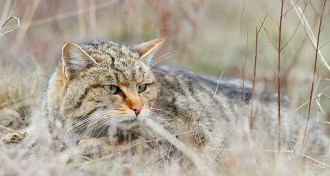 Animals
AnimalsChina trumps Near East for signs of most ancient farm cats
Earliest evidence found for grain as a force in feline domestication.
By Susan Milius -
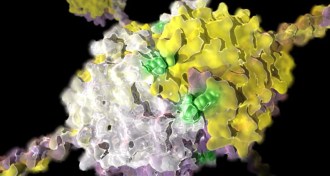 Chemistry
ChemistryAncient bond holds life together, literally
The chemical link between sulfur and nitrogen in animal tissues and organs may have sparked the assembly of single cells into complex animals.
By Beth Mole -
 Health & Medicine
Health & MedicineDog dust may benefit infant immune systems
Microbes from pet-owning houses protected mice against allergy, infection.
By Nathan Seppa -
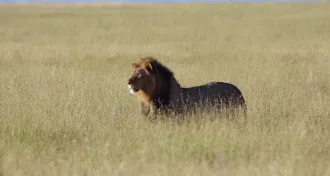 Animals
AnimalsProtecting wildlife with legal hunting is a complicated issue
Trophy hunting is legal in some African nations, but making the system work can be difficult, especially when data is lacking on how many animals exist.
-
 Neuroscience
NeuroscienceThe Aesthetic Brain
How We Evolved to Desire Beauty and Enjoy Art by Anjan Chatterjee.
By Bryan Bello -
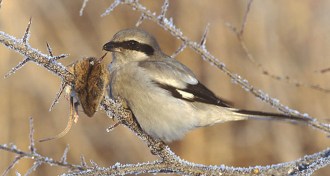 Animals
AnimalsA gory 12 days of Christmas
Insects and spiders are among the biggest gift-givers, often as part of mating, and anything from cyanide to a wad of saliva can be a present.
-
 Genetics
GeneticsYou are what your dad ate, perhaps
Your development is affected by what your mother ate while she was pregnant with you. Is it also affected by what your father ate? A new study suggests that folate deficiency in dads can affect their offspring through epigenetic changes.
-
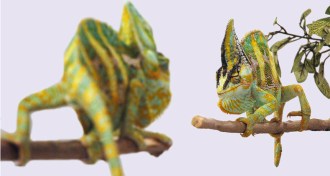 Animals
AnimalsBefore a fight, chameleons engage in colorful communication
Before one chameleon rumbles with another, he’ll display his side and change his stripes, indicating his willingness to fight.
-
 Microbes
MicrobesVirus-thwarting mosquitoes decline on Vietnamese island
Scientists plan to release second generation of mosquitoes that stop the spread of dengue fever.
By Beth Mole -
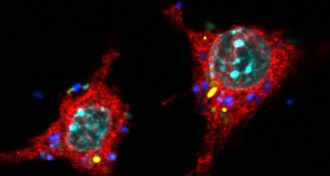 Microbes
MicrobesBacteria turn threatening in tests with immune cells
In less than 30 days, nonthreatening E. coli can transform into dangerous microbes in mice.
-
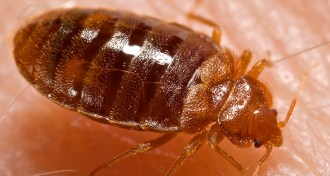 Animals
AnimalsBedbugs survive cold, but not for too long
Some studies have indicated that cold might kill bedbugs after as little as one hour of exposure. But new research finds that’s not the case.